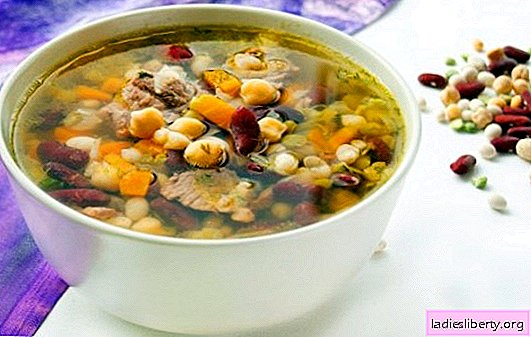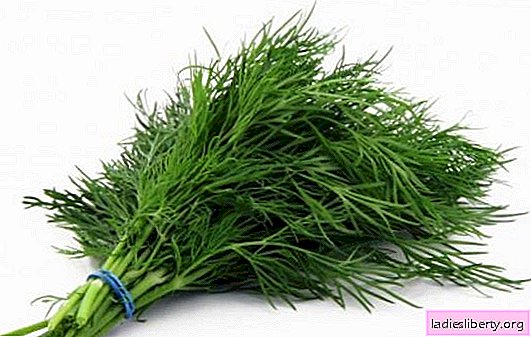
Guinea fowl eggs are no worse in taste than chicken and quail. And in nutritional qualities, they even surpass them and are highly recommended for the diet in order to improve health and even lose weight.
How composition and other details affect the benefits of guinea fowl eggs
A homemade guinea fowl is about the size of a chicken, and in appearance resembles a turkey. Its various breeds are bred as ornamental, as well as for meat (taste like game), eggs and feathers.
Caesar eggs are not widely sold everywhere (but if not in the store, you can search among farm products), partly because of their high cost, which comes from the low egg production of the bird - only 80-120 eggs per year.
In the kitchen they are used similarly to eggs of hens and quails.
But it is useful to consider that the large, bright orange yolk of a guinea fowl containing more solids, being well-fried or hard-boiled, is somewhat harsh.
Guinea fowl eggs are less than chicken - they weigh 40-50 g each.
But their shell is much more durable, which creates a number of features:
• at a temperature of 0 ... + 10 ° С, raw eggs can be stored for up to 6 months (for this quality, in conditions where the supply of fresh products is difficult, they are appreciated by anglers and polar explorers). But boiled will be stored in the refrigerator for 3 days;
• Guinea fowl eggs cook longer than chicken - 3-4 minutes to get soft-boiled and 8-10 minutes for hard-boiled eggs;
• the dense shell structure with a small number of pores protects the contents of the egg from the penetration of pathogenic microorganisms.
In addition, infection with salmonellosis (which guinea fowl suffer even less often with quail) and other viruses is hindered by the bactericidal properties of the protein.
All this allows you to freely eat guinea fowl eggs in raw form, to prepare eggnog and protein creams, desserts (for example, beaten with sugar and frozen eggs that are somewhat reminiscent of ice cream are popular in the USA).
Plus, raw eggs effectively help with the symptoms of a hangover.
The color of the shell varies from yellowish white to dark cream, most breeds are carried by eggs, covered with characteristic brown specks.
The energy value of caesar eggs is only 43 kcal per 100 g, which makes them 4 times less caloric than chicken eggs.
They also contain less impressive fat - 0.5 g per 100 g (versus 10.9 g in chicken).
But in carbohydrates (0.7 g) and proteins (12.8 g), the eggs of both birds are equivalent.
The protein of cesaric eggs can provide the body with a set of essential amino acids in the optimal ratio, and if you use eggs after heat treatment (preferably the minimum, as for poached eggs and omelettes), the amino acids will be fully absorbed.
Egg breakfast dishes energize the body for the whole day, contribute to increased performance and enhance cognitive abilities.
The above ratio makes BJU dishes of caesar eggs an optimal and simply a must choice for a menu designed to lose weight, build muscle, support the body with high physical exertion and athletic training.
Vitamins are also involved in creating the benefits of guinea fowl eggs and are most represented:
• And for the production of collagen, the synthesis of cell membranes;
• E for the synthesis of connective tissue protein — no less significant than collagen — elastin, normal blood coagulation and better absorption of vitamin A;
• D for calcium and phosphorus metabolism, and therefore, for strength and regeneration of bone tissue.
Vitamin A is most found in the yolk and carotenoids are concentrated there - all together it provides prevention of eye diseases, health and even (without age spots) skin tone and increase the body's defenses.
The mineral composition in the eggs consists mainly of iron, potassium, phosphorus, calcium, molybdenum, sulfur, silicon, manganese, fluorine, zinc and copper.
When will the guinea fowl eggs benefit?
Guinea fowl eggs are recommended to be included in the diet with constant fatigue and loss of strength, emotional and mental overload, in recovery periods after prolonged illnesses and surgical operations (especially in the abdominal cavity, since this product does not provoke bloating and constipation even if the intestines are disturbed).
This type of egg is not contraindicated and even useful for atherosclerosis and diseases of the cardiovascular system, in particular because it practically does not contain harmful cholesterol.
Also, regular use of caesar eggs will be useful for the following:
• restoration of impaired metabolism and skin cleansing, if these disorders are accompanied by acne;
• increase in hemoglobin and, as a result, prevention of iron deficiency anemia;
• treatment of diseases of the central and peripheral nervous systems;
• establishing the full functioning of the digestive system.
How to increase the benefits of guinea fowl eggs by eating their shells
Guinea fowl eggshell is a rare source of organic calcium, which, unlike many analogues of synthetic origin from pharmacies, is absorbed by the body by almost 100%.
And calcium is important not only for bone health (including the prevention and treatment of rickets in childhood and osteoporosis in the elderly), but also for:
• transmission of nerve impulses between cells;
• sound sleep instead of insomnia;
• muscle contractions.
In addition to calcium, over 25 mineral elements are present in the shell, but the level of their content varies depending on the living conditions (and especially on the diet) of the guinea fowl.
To prepare the shell for use, you need:
• cook hard boiled egg in unsalted water;
• clean the egg;
• boil the shell for 5 minutes in the water re-drawn into the saucepan, then change the water and repeat cooking;
• dry the shell with a clean kitchen towel;
• grind it (most conveniently in a coffee grinder) into powder.
For therapeutic purposes, eggshells take 1 teaspoon, washed down with warm water, every day, for 3-4 weeks. If you want to repeat the course, it is separated from the first one by a break of 2-3 weeks, in order to avoid over-saturation of the body with calcium.
Can Guinea Fowl Eggs Harm
Guinea fowl eggs (and any other bird) are not recommended for children in the first 2-3 days after vaccination, since any vaccination at this time lowers immunity, as a result of which previously non-existent negative reactions of the body to products classified as highly allergenic may occur.
The fact is that the edible eggs of any bird are, in principle, classified in this category, they are simply the least likely to cause harm to guinea fowl eggs in this regard.
Highly nutritious egg white is good in moderate doses and certainly cannot completely replace vegetable proteins from meat and dairy products, therefore, in order to avoid harm from guinea fowl eggs in the form of a violation of the protein balance of the body, one should not neglect the variety of diet.
In order to minimize the burden on the digestive system, it is better not to eat raw guinea fowl eggs during pregnancy and, as mentioned above, to subject them to at least minimal heat treatment.
In chronic and acute diseases of the kidneys and liver, guinea fowl eggs can bring harm, if only to eat them every day, but to use them from time to time and little by little is allowed.











